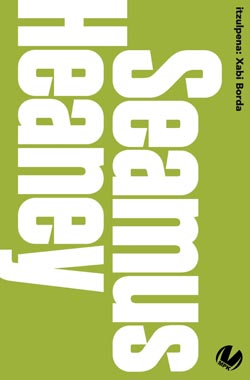
Aurkibidea
Aurkibidea
Naturalista baten heriotza
Urte osoan lihozko ezponda herrixka kanpoaldean
Usteltzen zen; liho berde heldu gabea
Kirastu egiten zen, soropil handien barrenean.
Tantaka hasten zen egunero eguzki errearen pean.
Burbuilak borborrean xalo, euli-mandoek
Ustel usainaren biran soinu-sare sendo bat ehuntzen zuten.
Sorgin-orratzak zebiltzan, tximeleta tantodunak,
Baina ederrena igel-arrautzen lerde bero
Eta lodi hura izaten zen, ibaiertzeko itzaletan
Ur geldia bezala hazten zena. Udaberriro
Marmelada poteak orban lirdingaz goraino beteko nituen
Etxeko leiho-erlaitzean errenkadan paratzeko,
Ikastetxeko apaletan, eta itxaron eta begiratu egingo nien
Arrautzak handitu eta zapaburu igerilari bizkorrek
Urratu arte. Walls andereñoak kontatuko zigun
Nola igel aitari igel-zezena deitzen zitzaion
Eta nola egiten zuen korroka eta nola igel amak
Ehunka arrautza txiki erruten zituen eta nola
Horixe zen igelen lerdea. Eguraldia ere iragar zenezakeen igelei esker
Hori baitziren eguzkipean eta marroi euripean.
Gerora, egun bero batean, belar gaineko behi gorotz plastoengatik
Kiratsa zerienean zelaiei, igel haserretuek
Lihozko ezponda hartu zuten; hesiak zeharkatu nituen makurtuta
Aurrez entzun gabeko korroka zakar baterantz.
Airea loditua zegoen lelo baxu batekin.
Ezpondaren ondoan igel tripandiak bihurrituta zeuden
Soropil gainean; haien lepagain ahulak haize-oihalak bezala mugitzen ziren.
Batzuek jauzi egiten zuten: plisti-plastak mehatxu lizunak ziren. Beste batzuk
Lasai zeuden lokatzezko granadak bailiran, euren buru soilak uzkerka zituztela.
Ondoezik jarri, buelta hartu eta lasterka hasi nintzen. Errege likatsu handiak
Mendekua hartzeko bildu ziren eta banekien
Eskua han sartzen banuen lerdeak lotu egingo ninduela.
Death Of A Naturalist
All year the flax-dam festered in the heart / Of the townland; green and heavy headed / Flax had rotted there, weighted down by huge sods. / Daily it sweltered in the punishing sun. / Bubbles gargled delicately, bluebottles / Wove a strong gauze of sound around the smell. / There were dragon-flies, spotted butterflies, / But best of all was the warm thick slobber / Of frogspawn that grew like clotted water / In the shade of the banks. Here, every spring / I would fill jampotfuls of the jellied / Specks to range on window-sills at home, / On shelves at school, and wait and watch until / The fattening dots burst into nimble- / Swimming tadpoles. Miss Walls would tell us how / The daddy frog was called a bullfrog / And how he croaked and how the mammy frog / Laid hundreds of little eggs and this was / Frogspawn. You could tell the weather by frogs too / For they were yellow in the sun and brown / In rain. / Then one hot day when fields were rank / With cowdung in the grass the angry frogs / Invaded the flax-dam; I ducked through hedges / To a coarse croaking that I had not heard / Before. The air was thick with a bass chorus. / Right down the dam gross-bellied frogs were cocked / On sods; their loose necks pulsed like sails. Some hopped: / The slap and plop were obscene threats. Some sat / Poised like mud grenades, their blunt heads farting. / I sickened, turned, and ran. The great slime kings / Were gathered there for vengeance and I knew / That if I dipped my hand the spawn would clutch it.